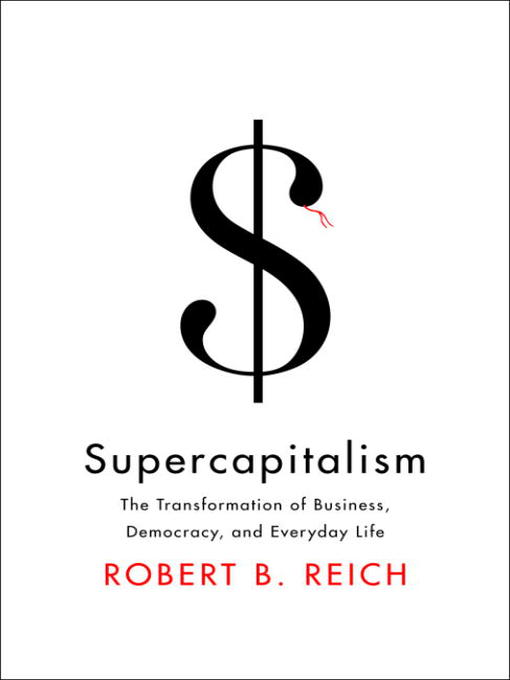
Supercapitalism
The Transformation of Business, Democracy, and Everyday Life
کتاب های مرتبط
- اطلاعات
- نقد و بررسی
- دیدگاه کاربران
نقد و بررسی

July 16, 2007
In this compelling and important analysis of “the triumph of capitalism and the decline of democracy,” former labor secretary Reich urges us to rebalance the roles of business and government. Power, he writes, has shifted “away from us in our capacities as citizens and toward us as consumers and investors.” While praising the spread of global capitalism, he laments that “supercapitalism” has brought with it alienation from politics and community. The solution: “to separate capitalism from democracy, and guard the border between them.” Plainspoken and forceful, if somewhat repetitious, the book urges new and strengthened laws and regulations to restore authority to “the citizens in us.” Reich’s proposals are anything but knee-jerk liberal: he calls for abolishing the corporate income tax and labels the corporate social responsibility movement distracting and even counterproductive. As in 2004’s Reason
, Reich exhibits perhaps too much confidence in Americans’ ability to think and act in their own best interests. But he refuses to shift blame for corporations’ dominance to the usual suspects, instead pointing a finger at “consumers like you and me who want better deals, and from investors like us who want better returns,” he writes. Provocatively argued, this book could help begin a necessary national conversation.

July 1, 2007
Reich, professor of public policy and former secretary of labor, argues that asthe U.S.has grown stronger as a capitalist economy, it hasgrown weaker as a democratic nation. Reich begins by looking at the political and economic history that has contributed to the particular brand of capitalism and democracy practiced in the U.S. and how democracy is threatened as more and more Americans are engrossed in their roles as consumers and investors and less so as citizens. He recalls the almost Golden Age of the 1950s, a period of stability as large corporations, big labor, and government managed the interests of consumers, workers, management, and investors for the common good. The spread of capitalism to a global level hasnt corresponded with a spread of democracy throughout the world and has led to some negative social consequences at home, including widening inequalities and a shrinking social safety net. Reich asserts that although Americans dislike what lower wages are doing to us as a nation, when weighed against lower prices or higher return on investments, we vacillate or look the other way. Reich uses tables and charts and plain speech to describe how the economy has grown so efficient and effective that the human equation is lost and how the democracy has become less and less responsive to common values. As citizens, we need to make our purchases and investments a social choice as well as a personal one, Reich maintains.(Reprinted with permission of Booklist, copyright 2007, American Library Association.)

























دیدگاه کاربران